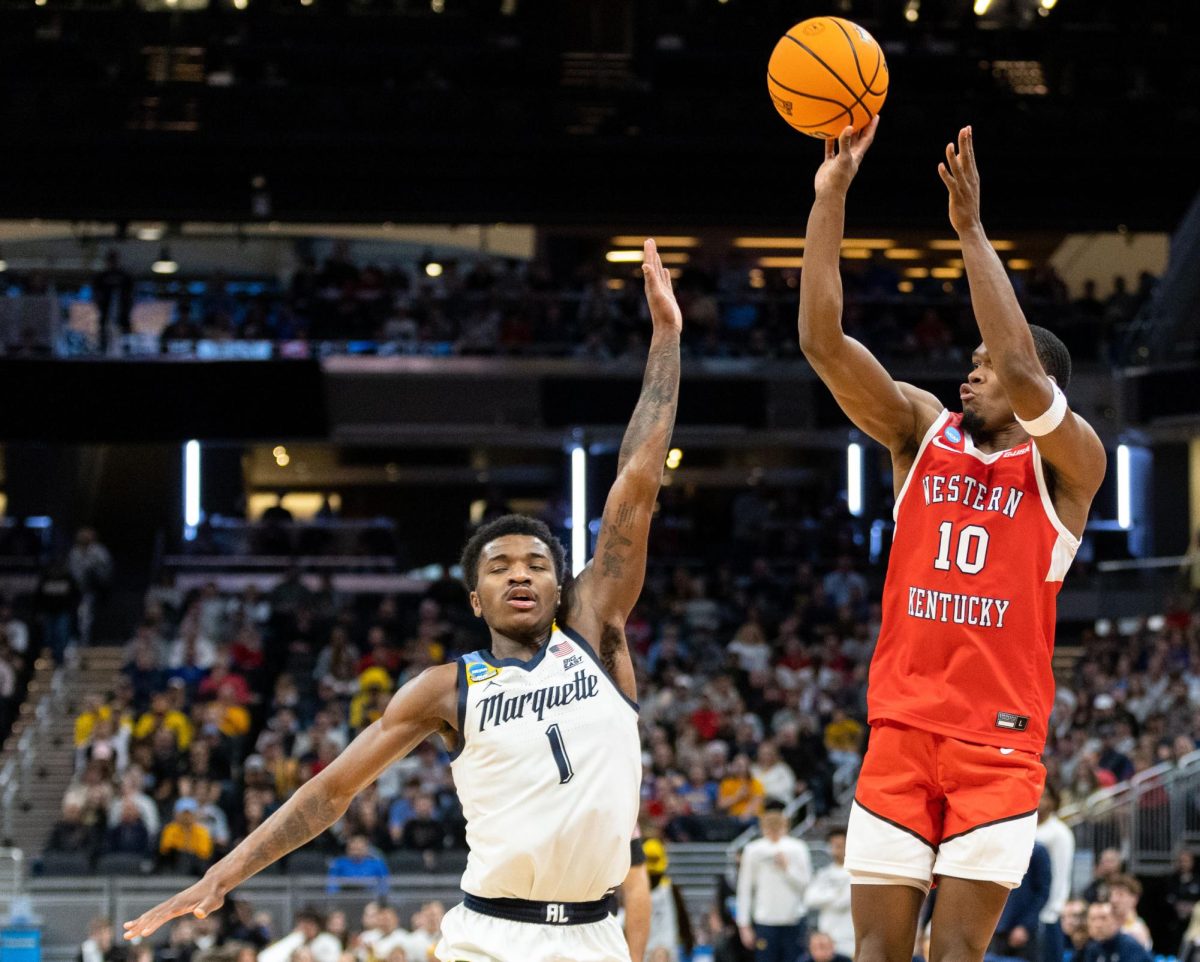Synthesis: “I demand more than marriage equality”
September 17, 2015
Synthesis provides analysis on local and national topics from a perspective of social justice often allied with a healthy dose of sarcasm.
With the recent SCOTUS Supreme Court decision Obergefell vs. Hodges, which affirmed the unconstitutionality of denying same-sex couples the right to marry, it cannot be denied that the moral arc of the universe continues to bend towards justice. This decision became particularly relevant to Kentucky when our very own Kim Davis decided to pit religious freedom and civil rights against each other in some sort of thunderdome-esque battle to the death.
As fun as it would be to write a piece on the legal and logical gymnastics one has to be proficient in to justify Davis’ stance, that is not the topic of today’s article. Instead, I want us to consider what rights were actually won in Obergefell vs. Hodges.
The notion that the right to marry was the end goal of LGBT individuals’ struggle is shortsighted and potentially dangerous. Legalizing marriage for all consenting adults, I fear, has allowed us to lull ourselves into a false sense of security regarding civil rights.
In some places in the U.S., a couple can get married on a Saturday, have a nice brunch on a Sunday and be fired from their jobs on Monday. In Bowling Green there is no existence of a Fairness Ordinance, meaning anyone can be fired or evicted from their apartment or home based on a perceived sexual orientation or gender identity.
Somehow in the public discourse around the advancement of civil rights for the LGBT community, the right to marry became more important than the right to live without fear of being homeless or unemployed.
I am by no means attempting to belittle the struggles of those who fought hard for the right to marry the person they love. That was a noble and long overdue right, but I am calling our collective attention to the skewed way liberals direct our attention to social problems.
It is easy to champion marriage equality since that war’s battlefield was in the courtroom. The LGBT ally need only post a status on social media or proclaim LGBT folks deserve equal rights to be seen on the right side of history.
Collective direct action will be necessary to guarantee the basic human rights LGBT folks are owed. There must be protests; there must be sit-ins; there must be organizing. There must be more than a mere proclamation of good intentions. I implore readers who considers themselves LGBT allies to get involved and not to become complacent.
One of the many ways you can help pass local protections for LGBT folks in Bowling Green is by checking out the Bowling Green Fairness Campaign. They meet on campus and work to help pass local and state ordinances that would outlaw homophobic discrimination practices for both housing and employment. While marriage equality is an encouraging first step, there is much more work to be done before the just nation we were promised can come to fruition.












![Students cheer for Senator at Large Jaden Marshall after being announced as the Intercultural Student Engagement Center Senator for the 24th Senate on Wednesday, April 17 in the Senate Chamber in DSU. Ive done everything in my power, Ive said it 100 times, to be for the students, Marshall said. So, not only to win, but to hear that reaction for me by the other students is just something that shows people actually care about me [and] really support me.](https://wkuherald.com/wp-content/uploads/2024/04/jadenmarshall-1200x844.jpg)












